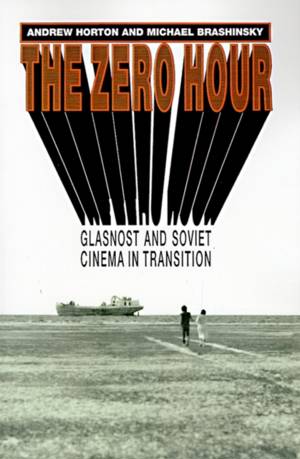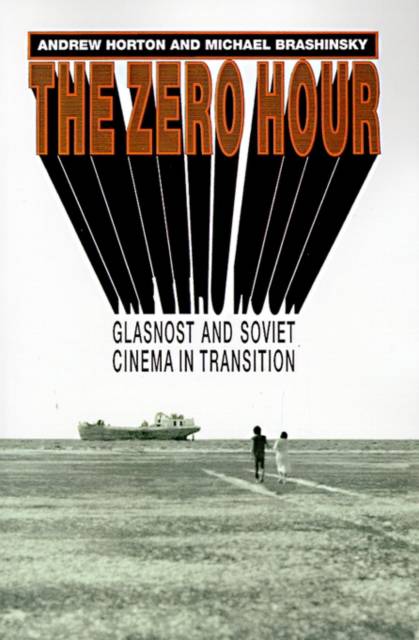
- Afhalen na 1 uur in een winkel met voorraad
- Gratis thuislevering in België vanaf € 30
- Ruim aanbod met 7 miljoen producten
- Afhalen na 1 uur in een winkel met voorraad
- Gratis thuislevering in België vanaf € 30
- Ruim aanbod met 7 miljoen producten
The Zero Hour
Glasnost and Soviet Cinema in Transition
Andrew Horton, Michael BrashinskyOmschrijving
Now faced with the "zero hour" created by a new freedom of expression and the dramatic breakup of the Soviet Union, Soviet cinema has recently become one of the most interesting in the world, aesthetically as well as politically. How have Soviet filmmakers responded to the challenges of glasnost? To answer this question, the American film scholar Andrew Horton and the Soviet critic Michael Brashinsky offer the first book-length study of the rapid changes in Soviet cinema that have been taking place since 1985. What emerges from their collaborative dialogue is not only a valuable work of film criticism but also a fascinating study of contemporary Soviet culture in general. Horton and Brashinsky examine a wide variety of films from BOMZH (initials standing for homeless drifter) through Taxi Blues and the glasnost blockbuster Little Vera to the Latvian documentary Is It Easy to Be Young? and the "new wave" productions of the "Wild Kazakh boys." The authors argue that the medium that once served the Party became a major catalyst for the deconstruction of socialism, especially through documentary filmmaking. Special attention is paid to how filmmakers from 1985 through 1990 represent the newly "discovered" past of the pre-glasnost era and how they depict troubled youth and conflicts over the role of women in society. The book also emphasizes the evolving uses of comedy and satire and the incorporation of "genre film" techniques into a new popular cinema. An intriguing discussion of films of Georgia, Estonia, Latvia, Lithuania, and Kazakhstan ends the work.
Specificaties
Betrokkenen
- Auteur(s):
- Uitgeverij:
Inhoud
- Aantal bladzijden:
- 304
- Taal:
- Engels
Eigenschappen
- Productcode (EAN):
- 9780691019208
- Verschijningsdatum:
- 15/07/1992
- Uitvoering:
- Paperback
- Formaat:
- Trade paperback (VS)
- Afmetingen:
- 152 mm x 231 mm
- Gewicht:
- 449 g

Alleen bij Standaard Boekhandel
Beoordelingen
We publiceren alleen reviews die voldoen aan de voorwaarden voor reviews. Bekijk onze voorwaarden voor reviews.











